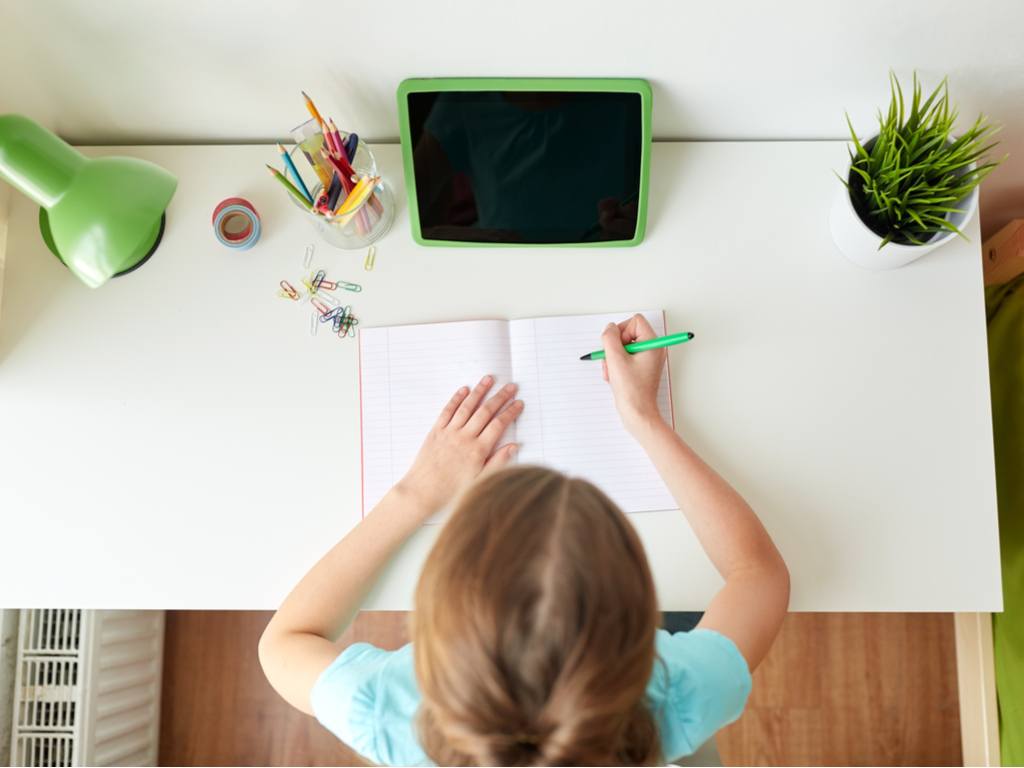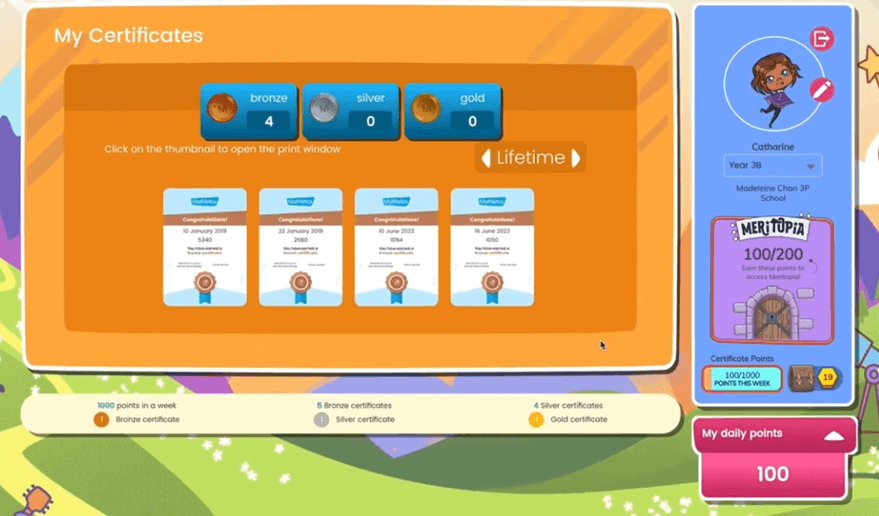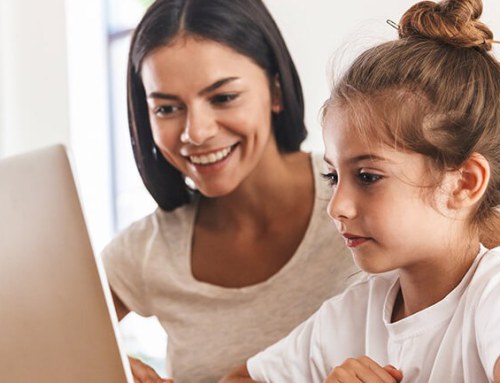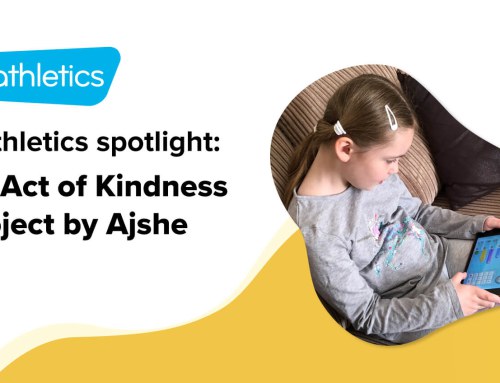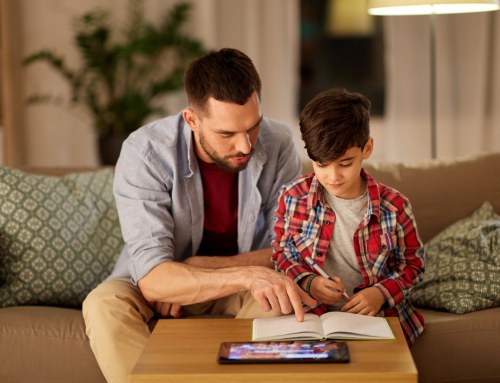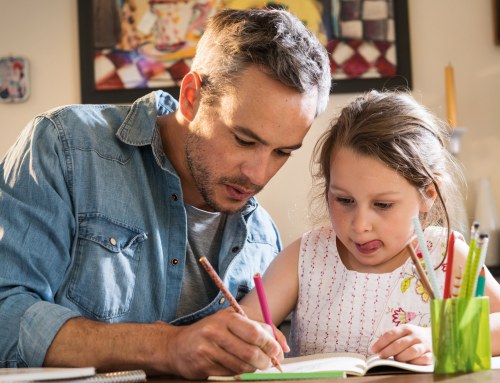Home-learning is not easy.
Most days, you warrant a pat on the back for getting through 2 out of 5 lessons. With distractions facing your child at every turn and a packed schedule of your own that needs attention, it often feels like an uphill battle.
We’re here to give you the tools we use, as educators, to get through those sticky periods. It doesn’t have to be perfect, we just need to push through.
Remember, use the knowledge you already have about your children’s behaviour to your advantage. You know your own children better than anyone else!
Stay positive
Easier said than done, we know. But a little positivity can go a long way. When kids can feel your frustration, they’ll mirror your behaviour. More than that, they’ll begin to associate learning with stress.
This doesn’t mean you have to be all sunshine and daisies 24/7 but when you can feel yourself getting annoyed, take a step away, give them an independent activity and let yourself breathe.
You’re not a college professor and that’s ok. Start the day with a smile on your face and your kids will be better for it.
Praise positive behaviour
We know, from countless studies, that praising positive behaviour is infinitely more effective than punishing bad behaviour. In education this concept is called a growth mindset. It’s the idea that intelligence can be developed. Students with a growth mindset understand they can get smarter through hard work and the use of effective strategies.
The focus of success should always be the work not a natural skill. When discussing successes at home make sure to emphasize the work they put in, rather than the outcome.
For home-learning in particular, make sure to also praise kindness, patience and respect. When there behaviours are reinforced with recognition they become more long-lasting attitudes.
Break up learning time
Even when school is in session there are breaks between lessons. Make sure to regularly schedule breaks that flow well with the kids’ attention spans. Get them up and moving so they get out all that extra energy and are ready to return to their work.
Bonus points if you can get some sunshine in there (within lockdown restrictions, of course).
Celebrate achievements
Who doesn’t love to see their name on the top of the leaderboard? Make sure to put any achievements on display at home. These don’t just have to be academic achievements, celebrate new personal bests or some really special artwork.
This kind of recognition validates their learning and motivates them to do more.
Use rewards as incentives
How many times have you told yourself: “If I finish this report, I am allowed to have a glass of wine.”? The same incentivizing logic applies to children. Use rewards to make sure big tasks get done. Here are just a few examples of things you can put on offer:
- Cooking a favourite meal
- Watching a movie of their choice
- Finishing up early
- Playing a game together
- Quality time with Mum or Dad
Change up the scenery
Break things up by learning in an outdoor area, the lounge, or even the dining table. Moving around keeps things fresh and can help eliminate some of the restlessness that comes from being in one spot for most of the day. Just make sure there are minimal distractions in your new location.
Side note: Be careful to reserve this for when the kids are really getting restless. Learning at home works best when there’s a designated area – you don’t want them wandering all over the house and ‘learning’ in front of the TV.
Discuss their learning
Encourage the whole family to talk about what they’ve learned at the dinner table. Remember, it should be a two-way conversation. They’ll become more engaged with their learning and take ownership of it.
Schedule group studies
Your kids miss their friends too! If possible, work with parents to set up a Zoom study date. Your children will get to socialize with peers outside the home, they can work on tricky problems and (hopefully) have a laugh. It’s good for the soul and the brain.
Pro-trip: Older siblings can also help out with teaching the younger ones. Kids love to play the teacher and it facilitates the learning of both parties.
Set goals together
What do you want to achieve from home learning? What are your kids looking to get out of this experience? Sit down together and build out a list of goals. Make sure they are formatted to be challenging but attainable.
For example, challenge your children to get a certificate in an EdTech program such as Mathletics. Small but challenging goals like this can encourage your learned to take ownership over their learning by giving them something to work towards
Be gentle with one another
We keep coming back to this but that’s because it’s probably the most important reminder during lockdown. Everyone is processing this situation differently – from your littles ones to your coworkers to your partner.
The best gifts we can give one another are kindness and understanding.
We can do hard things
There is no question that this is a very challenging time. We are adjusting to a new normal and no one is expecting you to be perfect.
Keep your expectations attainable. Remember to prioritize your family’s well-being over all things. It’s better to leave this lockdown with happy, healthy kids than with tense, overworked little humans. You’ve got this.

